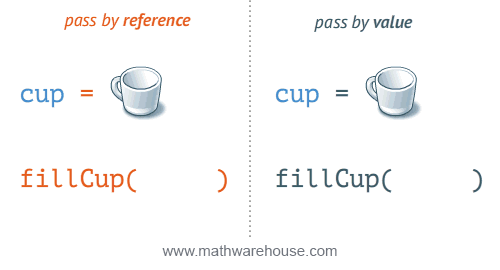You cannot override the static method of the interface; you can just access them using the name of the interface. If you try to override a static method of an interface by defining a similar method in the implementing interface, it will be considered as another (static) method of the class (a.k.a method-hiding).
- Default vs static method conflict from parent interfaces, which one wins?
public interface Sup1 {
static int myMethod() {
return 1;
}
}
public interface Sup2 {
default int myMethod() {
return 2;
}
}
// when we implement both interfaces in the same class then the default method wins
public class Impl implements Sup1, Sup2 {
public static void main(String[] args) {
Impl s = new Impl();
int val = s.myMethod();
System.out.println(val);
}
}
//prints
>> 2- Referential Transparency: any call to the program may be replaced with the corresponding return value without changing the result of the program (no side effects).
below is referential transparent method
int add(int a, int b) {
return a + b
}below is NOT, referential transparent method because replacing the method with the result will change the result of the program since the message will no longer be printed.
int add(int a, int b) {
int result = a + b;
System.out.println("Returning " + result);
return result;
}-
Higher Order Function: function taking function as an argument and also can returning a function as well.
-
First Class Citizen: That means that you can create an "instance" of a function, as have a variable reference that function instance. Java doesn't support first class citizen but the closest we have is with lambda expressions (assigning them to variables).
-
Covariant,Invariant,Contravariant -
Functional Interfaces (a.k.a Single Abstract Method Interfaces or SAM Interfaces:
It can have any number of **default**, **static** methods but can contain **only one abstract method**. It can also declare methods of **object class**.@FunctionalInterface public interface MyFunctionalInterface { public abstract void execute(); @Override String toString(); default void beforeTask() { System.out.println("beforeTask... "); } default void afterTask() { System.out.println("afterTask... "); } }
Consumer: accept(T t), andThen(Consumer<? super T> after)Supplier: get()Predicate: test(T t), and(Predicate<? super T> other), isEqual(Object targetRef), negate(), or(Predicate<? super T> other)Function: apply(T t), identity(), compose(Function<? super V,? extends T> before), andThen(Function<? super R,? extends V> after)
[javapapers] -> https://javapapers.com/java/java-stream-api/
peekmethod is not stateful from the picture above
- Type Erasures
- Best Resource from Angelika Langer
- Wildcards
- Java generics, objects and wildcards differences & clarifications
- Parameterized method
- Raw Type
- Types of Method References from Oracle doc
Class::StaticMethodName:Object::instanceMethodName:Class::instanceMethodName:Class::new:
Default Methodsinside methodsStatic Methodsinside methods
- About the Lambda FAQ
- Local Inner Classes: is that even possible? 🤔 For more examples
void display(){
class Local{
void msg(){System.out.println(data);}
}
Local l=new Local();
l.msg();
} - Free Variables
- not parameters inside lambda
- not defined inside the block of code
- not defined inside the right handside of the lambda expression
- 1. from stackoverflow
- 2. from stackoverflow
for example: text and count are free variables
public static void repeatMessage(String text, int count) {
Runnable r = () -> {
for (int i = 0; i < count; i++) {
System.out.println(text);
}
};
new Thread(r).start();
} A
/ \
B C
\ /
D
- The primary objective of the Jigsaw project is to introduce the modularity concept to create a module in Java 9 and then applying the same to JDK.
- Benefits of Jigsaw(Modularity)
- Strong Encapsulation
- Clear Dependecies
- Reliable
Optional.ofNullable(user);//Optional of Nullable value
Optional.of(notNullUserList);// Optional of Not Null value
return Optional.empty();// Empty Optional
// Consume if it is not Null
Optional<Address> optAddress = user.getAddress();
optAddress.ifPresent(System.out::println);
// Check if it is Not Null
Address address;
if(optAddress.isPresent){
address = optAddress.get();
}
// Get if Object is Not Null, else return default
Address defaultAddress = new Address (....);
Optional<Address> optAddress = user.getAddress();
Address address = optAddress.orElse(defaultAddress);
// Get if Object is Not Null, else Throw Exception
Optional<Address> optAddress = user.getAddress();
Address address = optAddress.orElseThrow(UserNotFoundException::new)
// Get Value
Optional<Address> optAddress = user.getAddress();
Address address = optAddress.get();YieldvsReturn: from stackoverflow : was included in Java 13
// static blocks
static int a;
static {
a = 5;
System.out.println("this is a static block");
}
// instance initialization block
int a;
{
a = 5;
System.out.println("this is instance initialization block");
}- Marker/Tagging Interfaces: provides
run-time typeinformation about objects
public interface FlyBehaviour{
// no method in here - empty
}- [Formatting Currency]
public class Solution {
public static void main(String[] args) {
Scanner scanner = new Scanner(System.in);
double payment = scanner.nextDouble();
scanner.close();
// Write your code here.
String us = NumberFormat.getCurrencyInstance(Locale.US).format(payment);
String india = NumberFormat.getCurrencyInstance(new Locale("en", "in")).format(payment);
String china = NumberFormat.getCurrencyInstance(Locale.CHINA).format(payment);
String france = NumberFormat.getCurrencyInstance(Locale.FRANCE).format(payment);
System.out.println("US: " + us);
System.out.println("India: " + india);
System.out.println("China: " + china);
System.out.println("France: " + france);
}
}- Final vs Effectively Final: An effectively final variable is a variable whose value is never changed, but it isn't declared with the final keyword.
- stackoverflow - best explanation with good example
- stackoverflow
- blank final : A blank final variable in Java is a final variable that is not initialized during declaration. Below is a simple example of blank final.
NOTE: Values must be assigned in constructor, not elsewhere. - Final Static Methods

Unlike Comparable, Comparator is external to the element type we are comparing. It’s a separate class. We create multiple separate classes (that implement Comparator) to compare by different members.
ArrayList<E> list = new ArrayList<>();
iterable.forEach(list::add);




